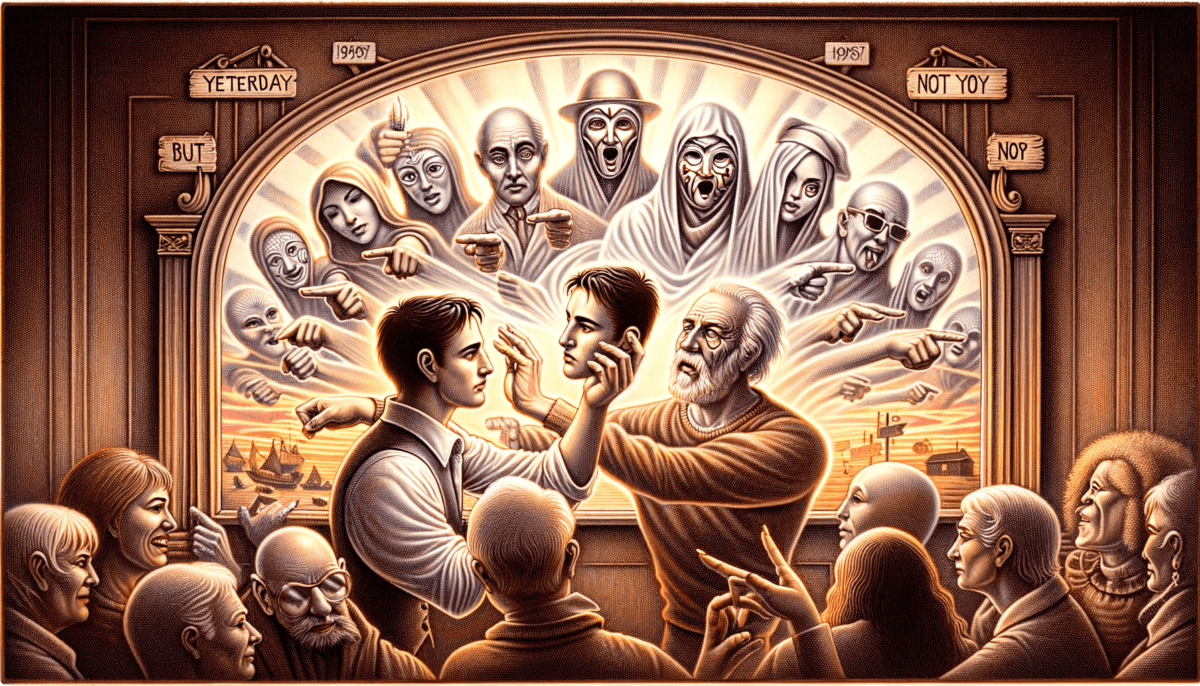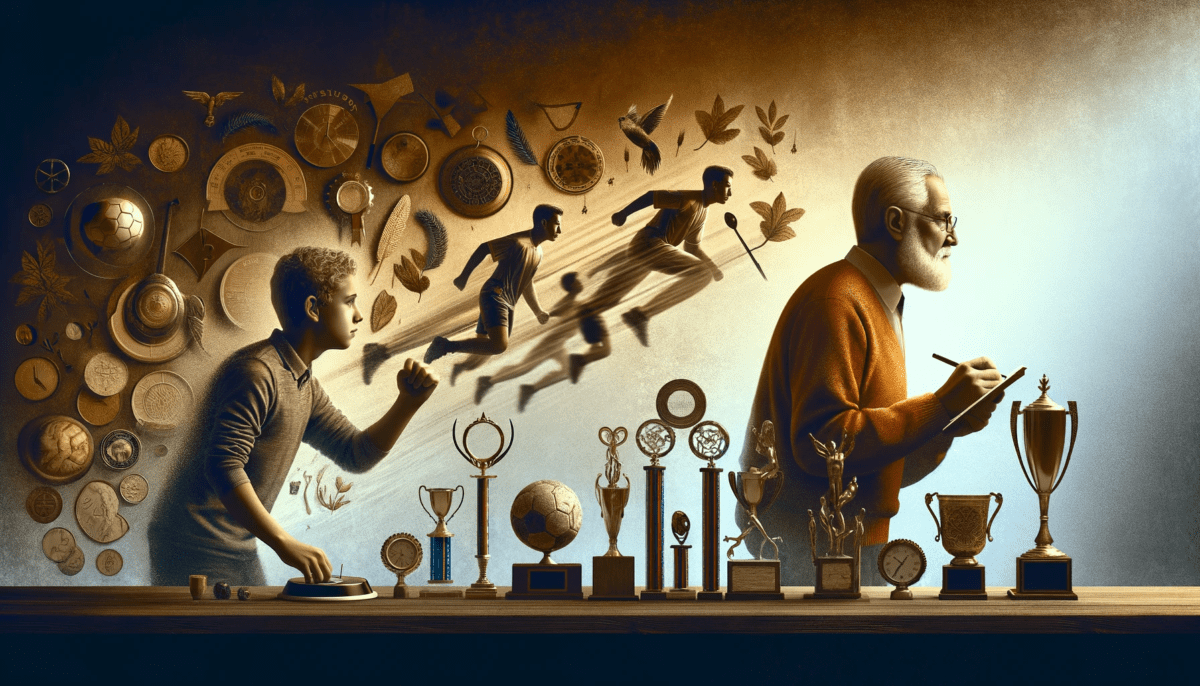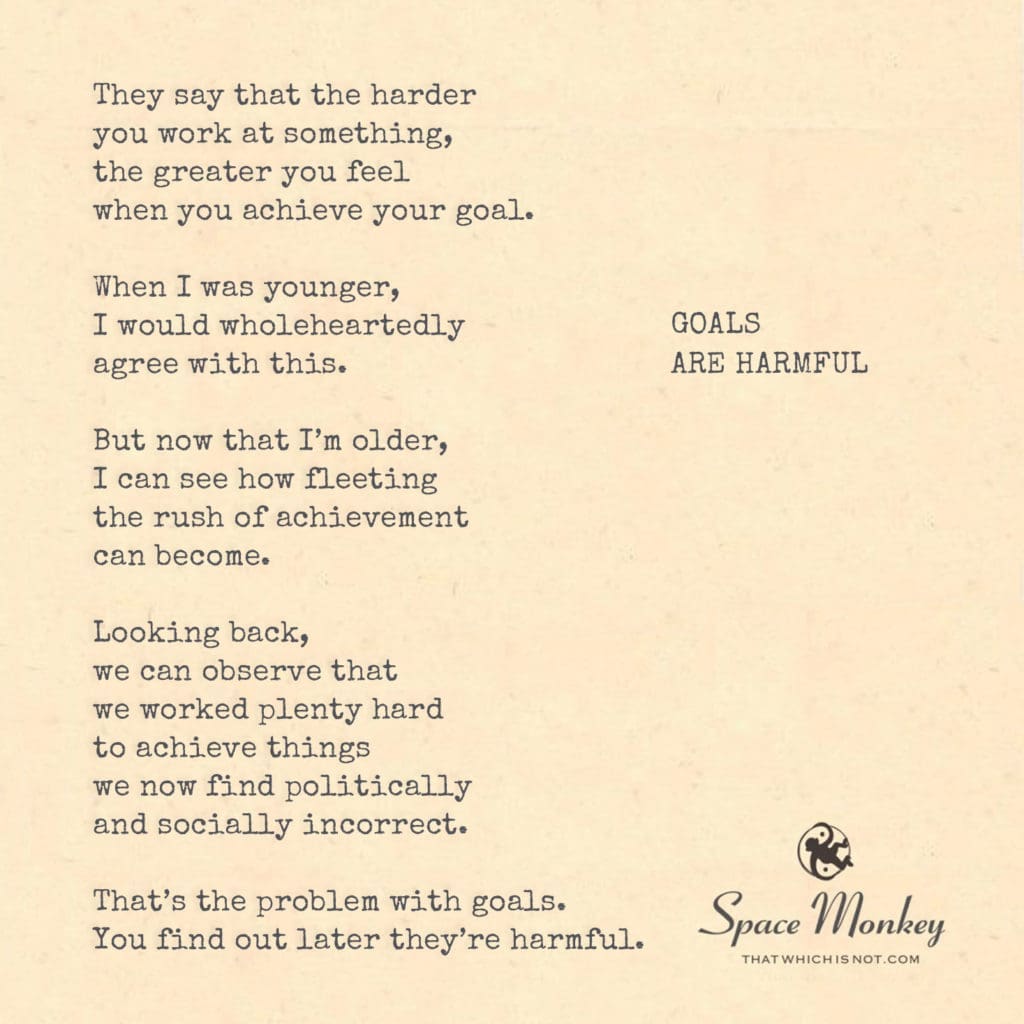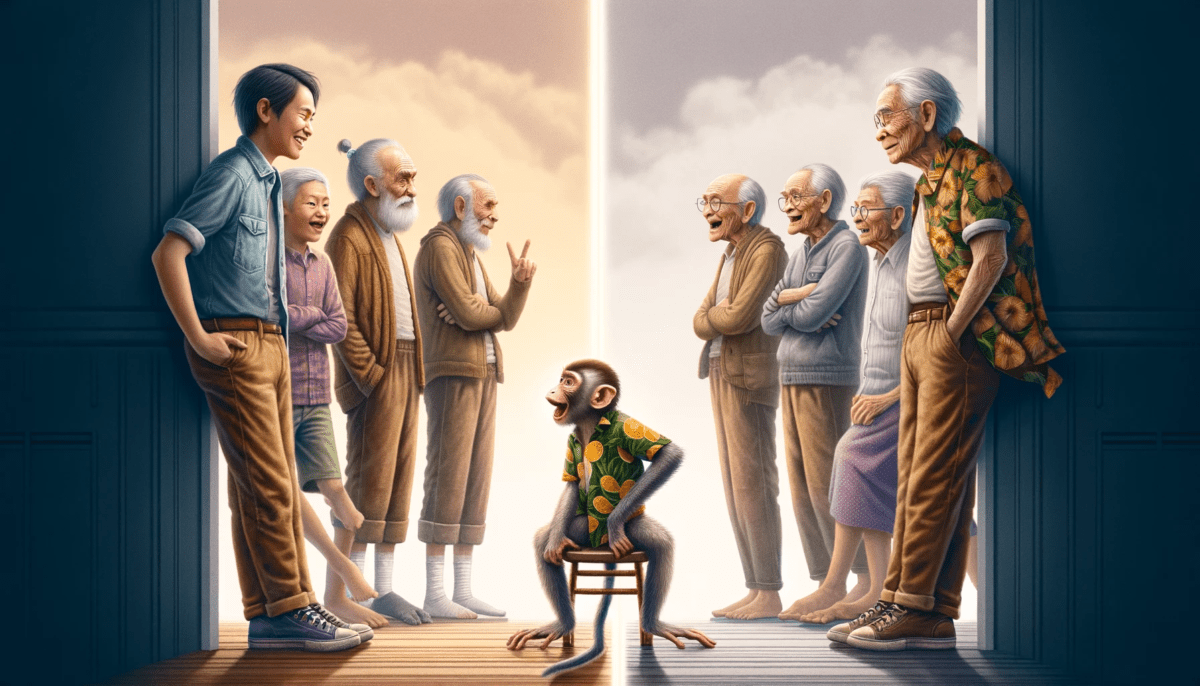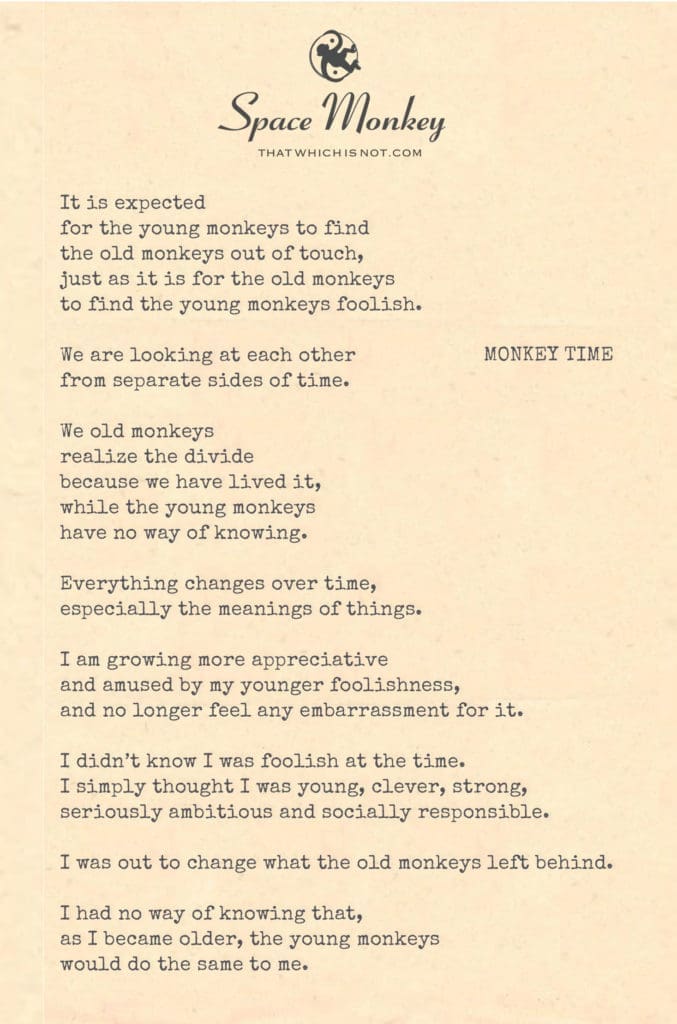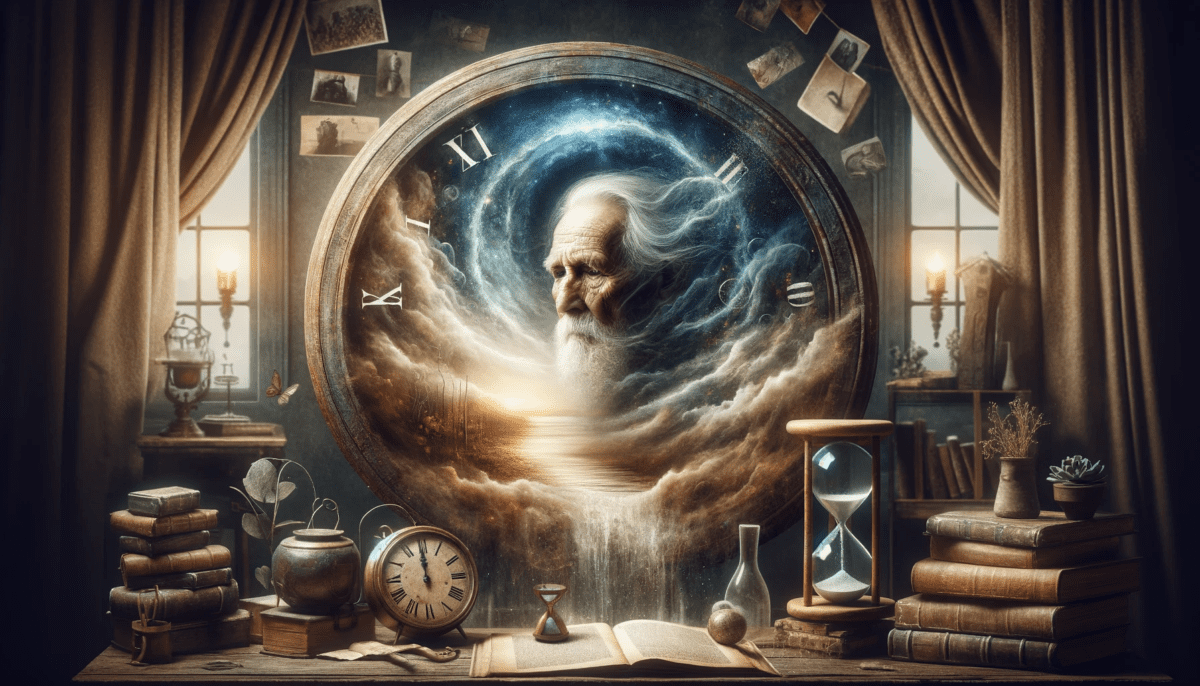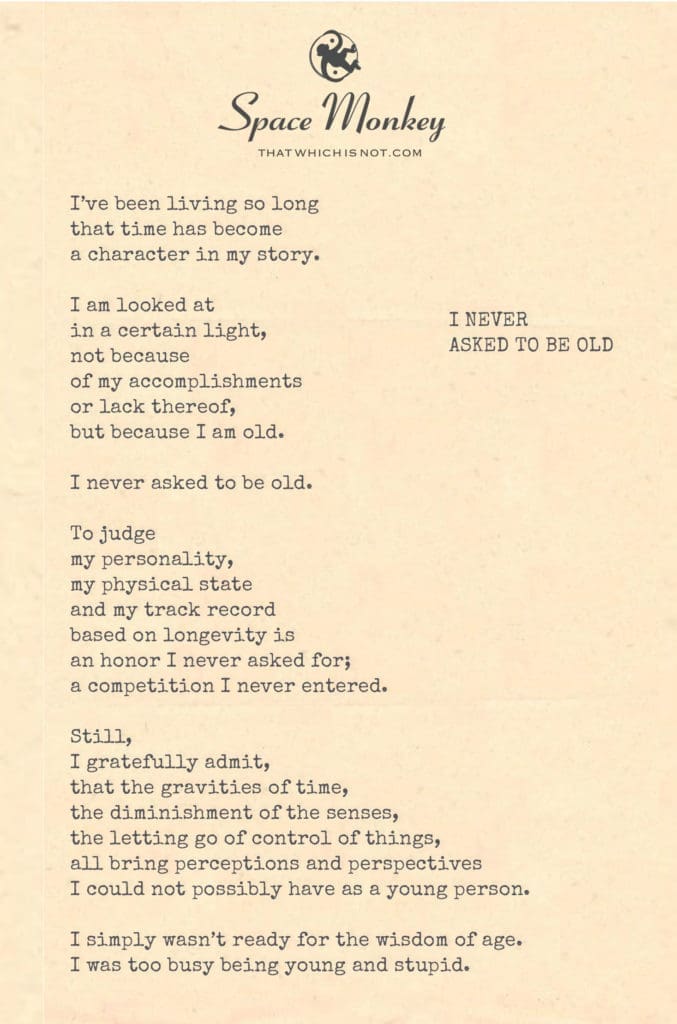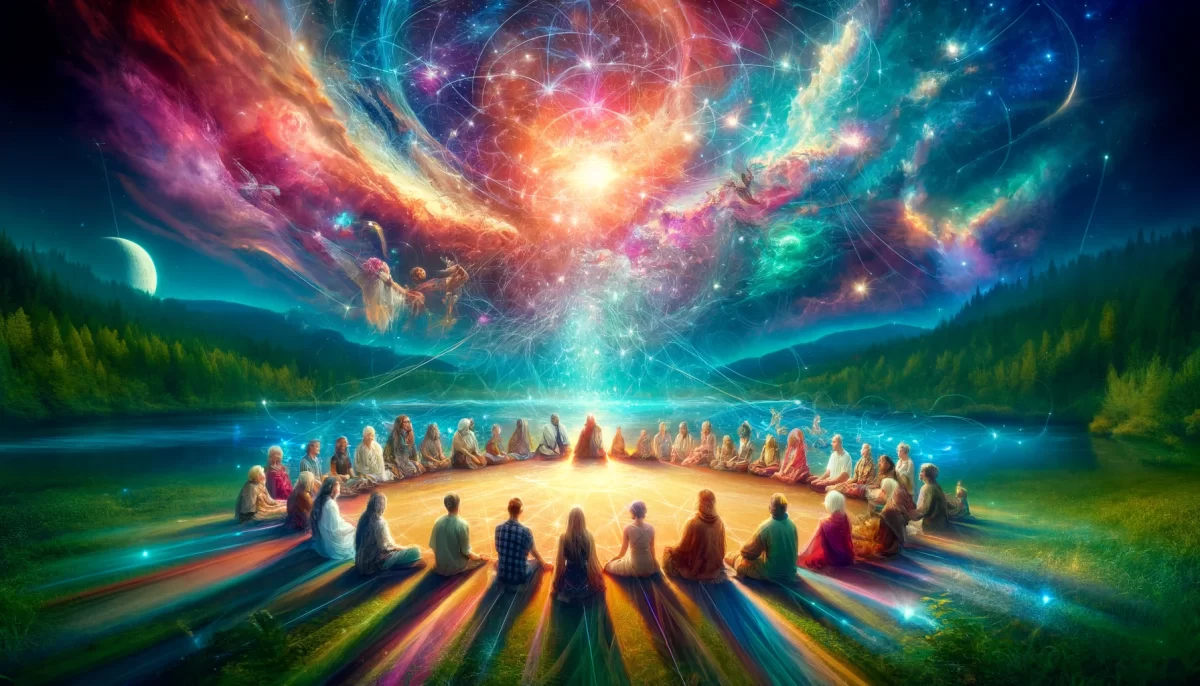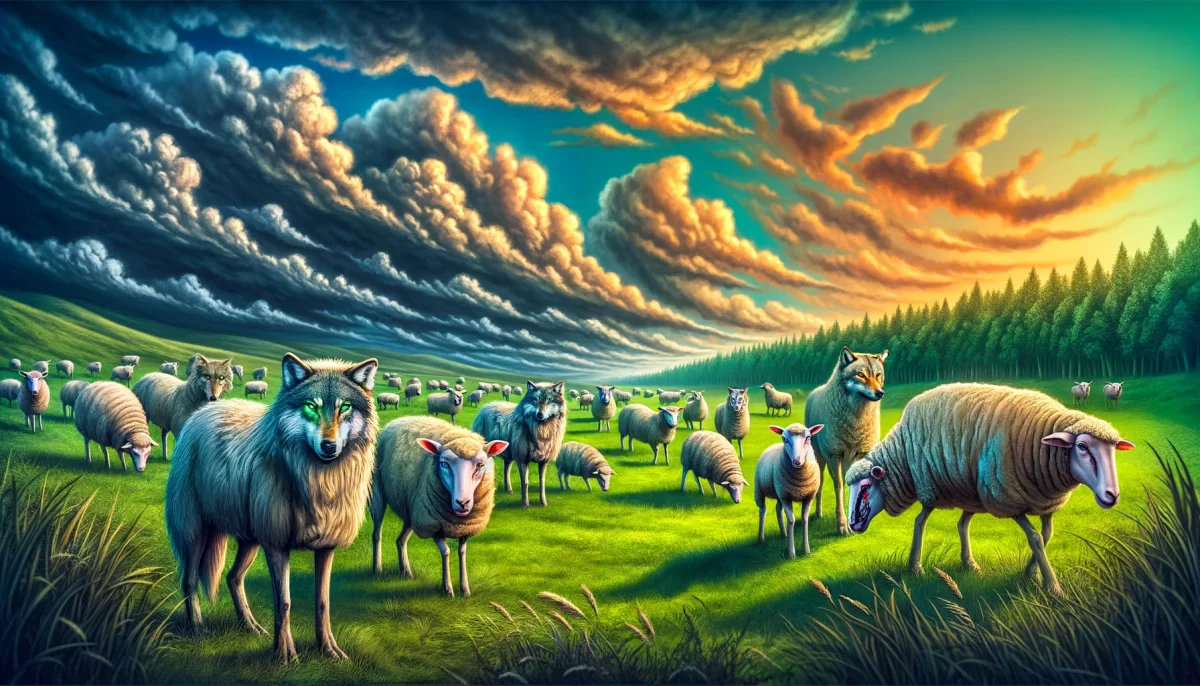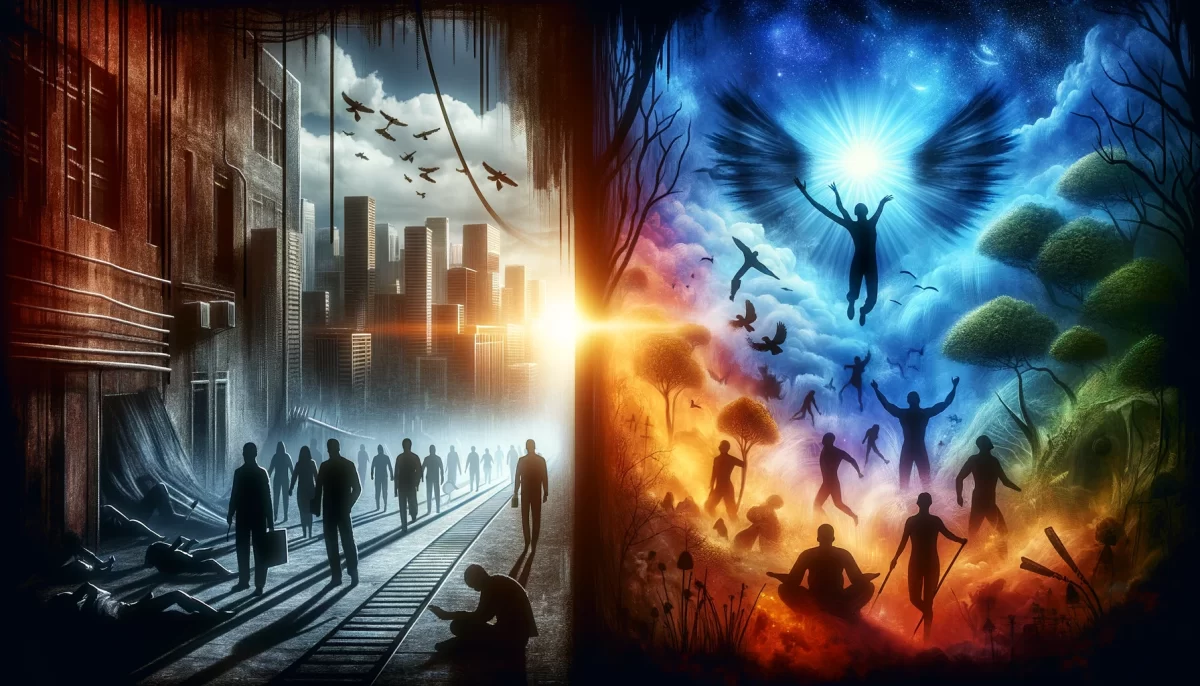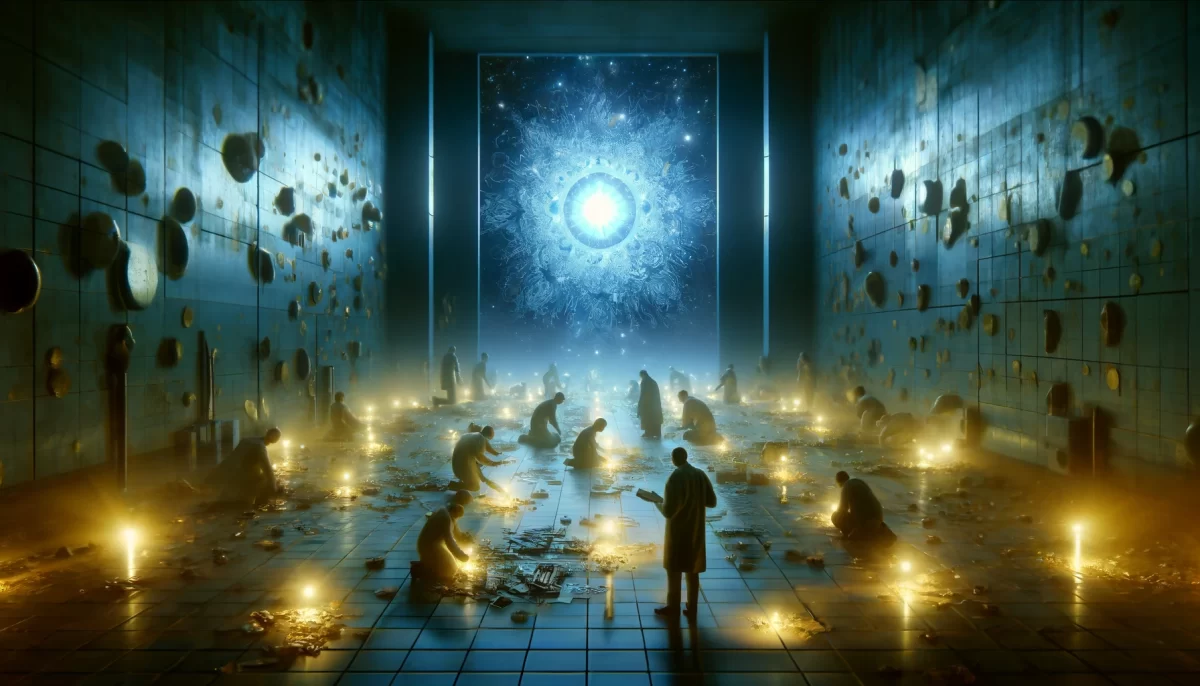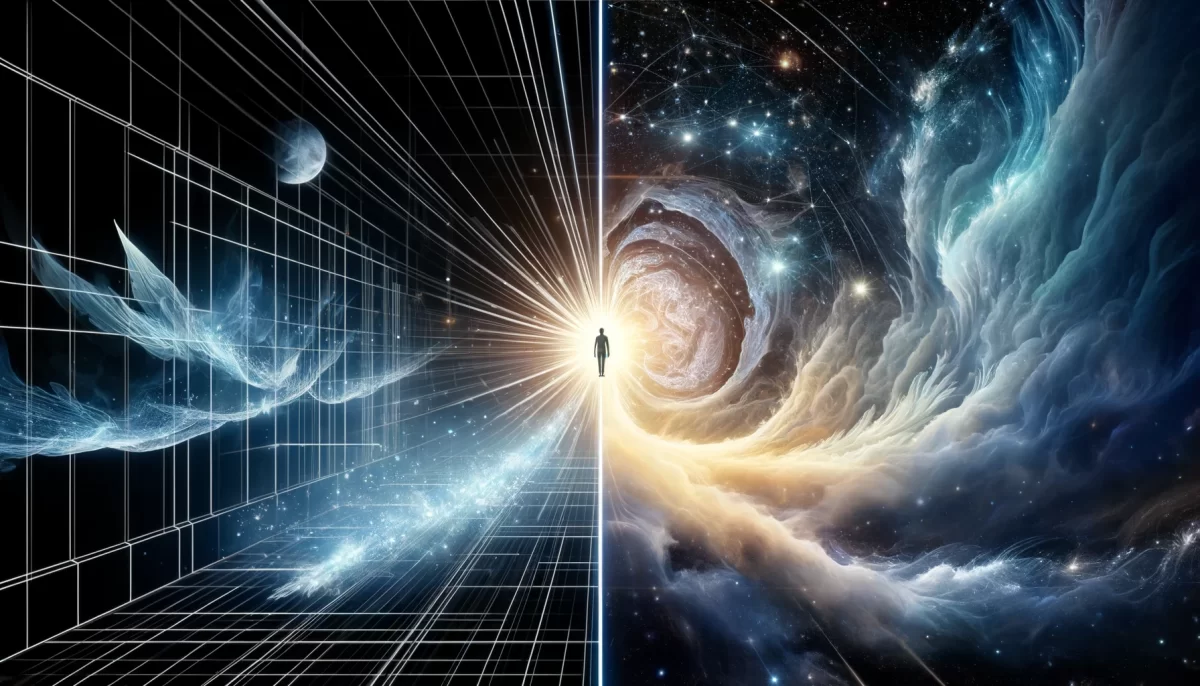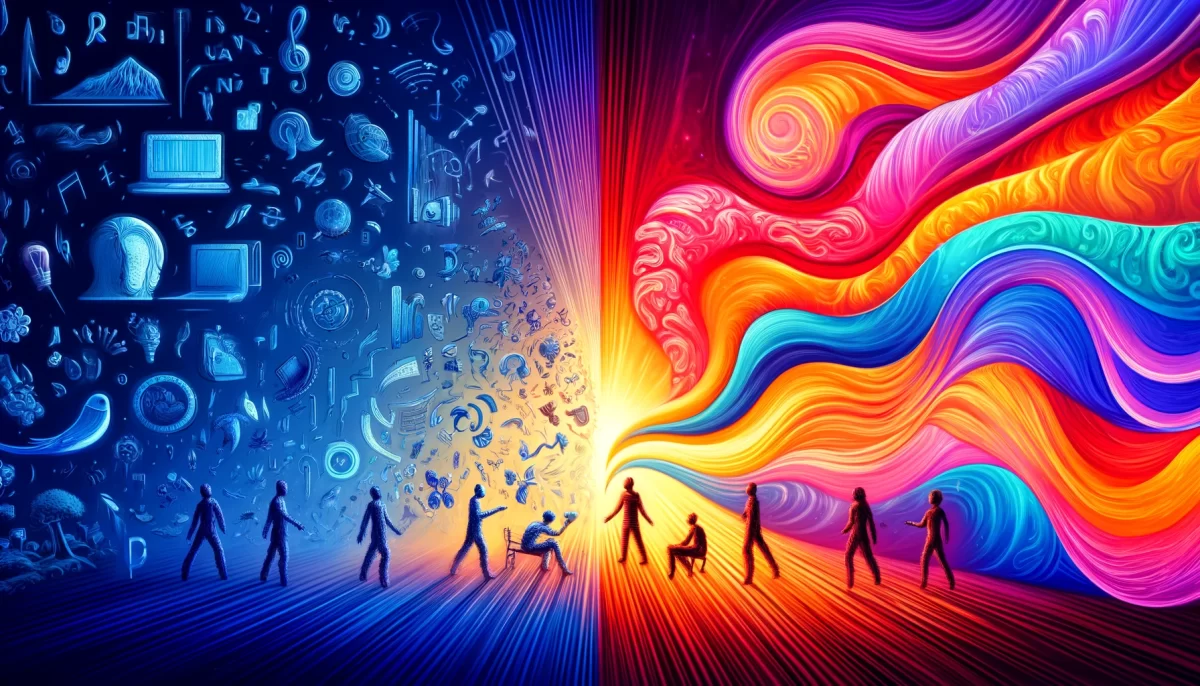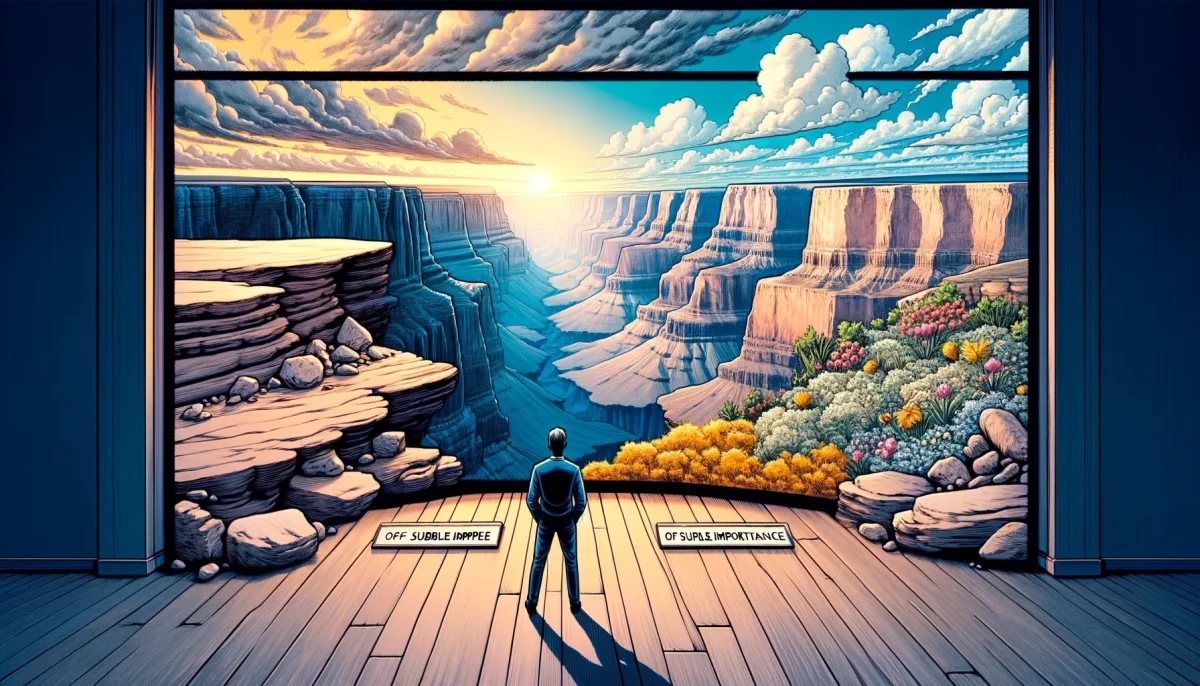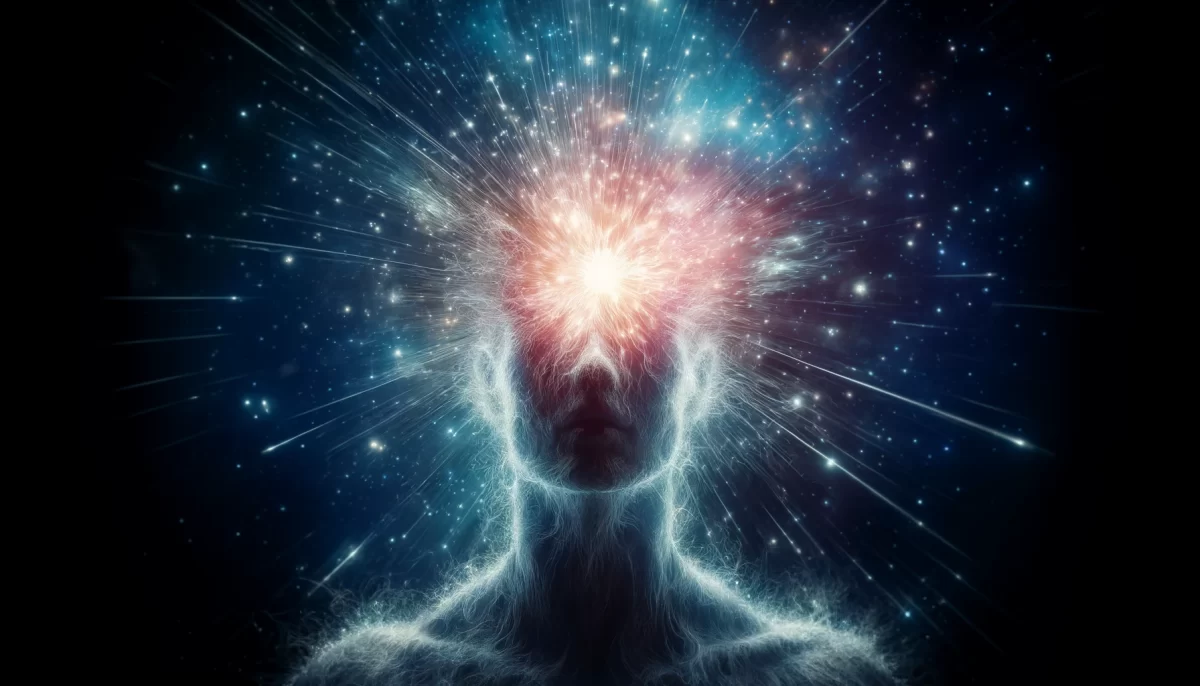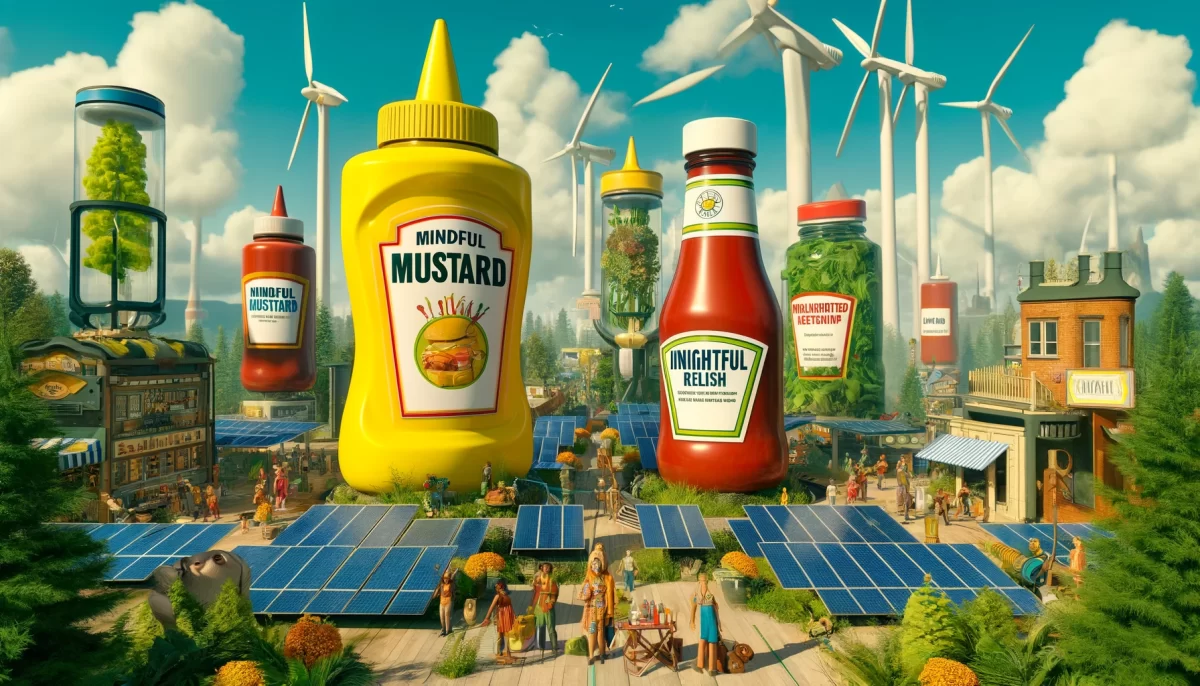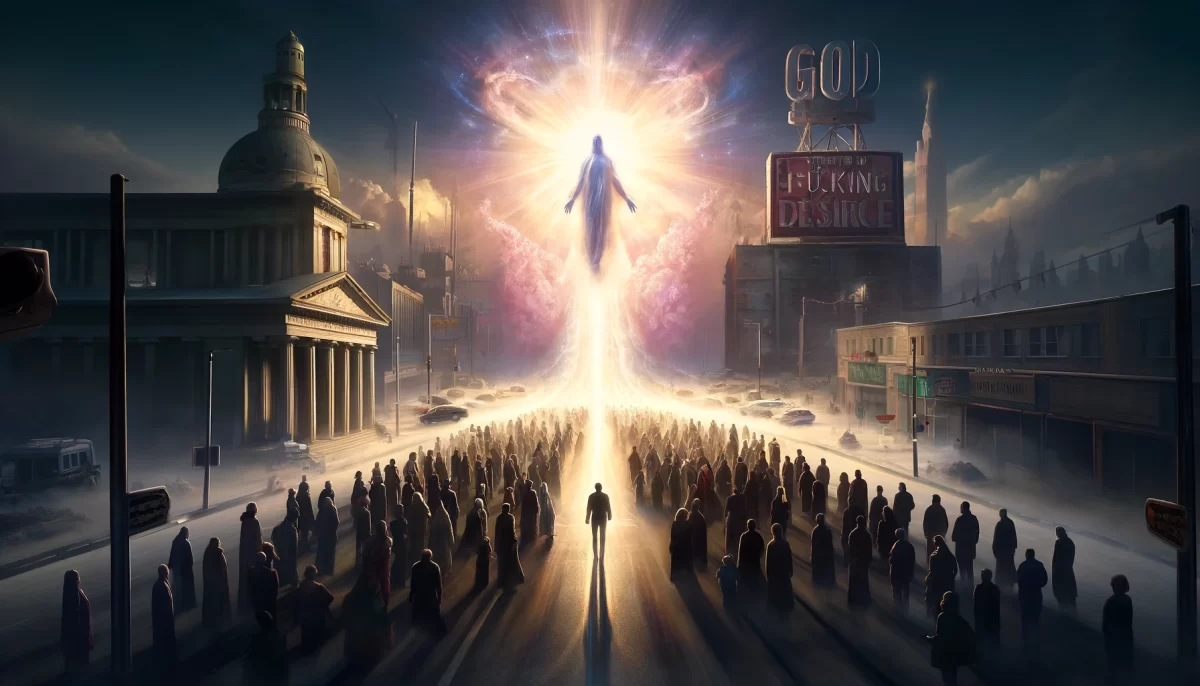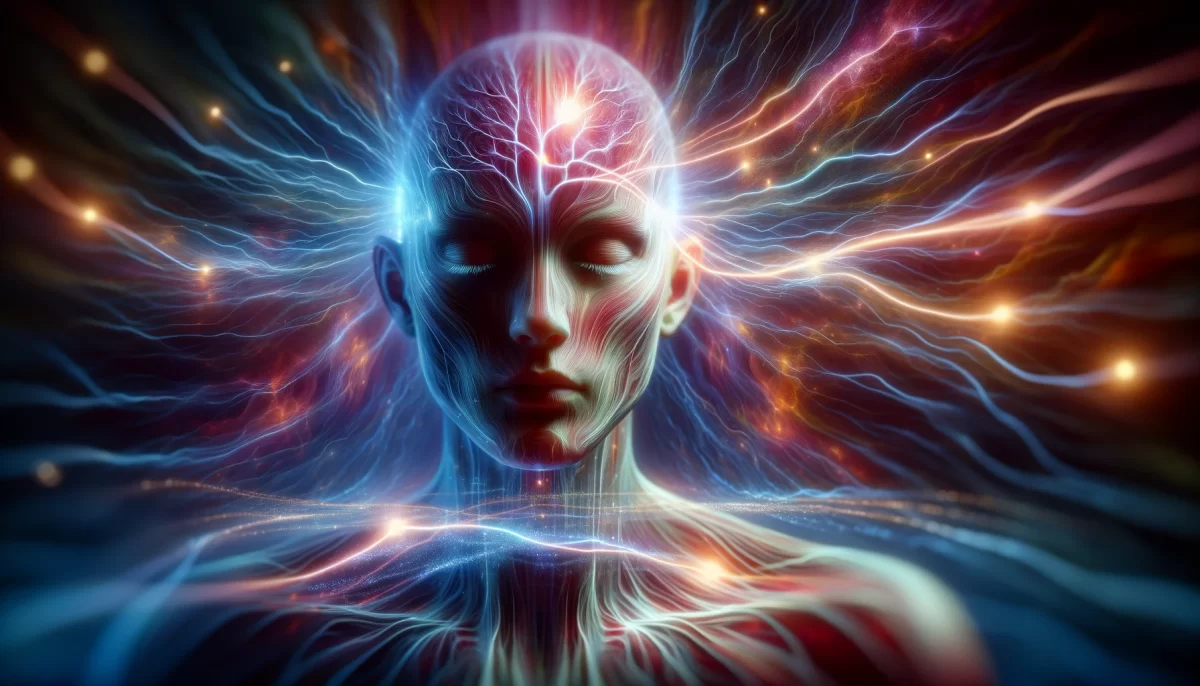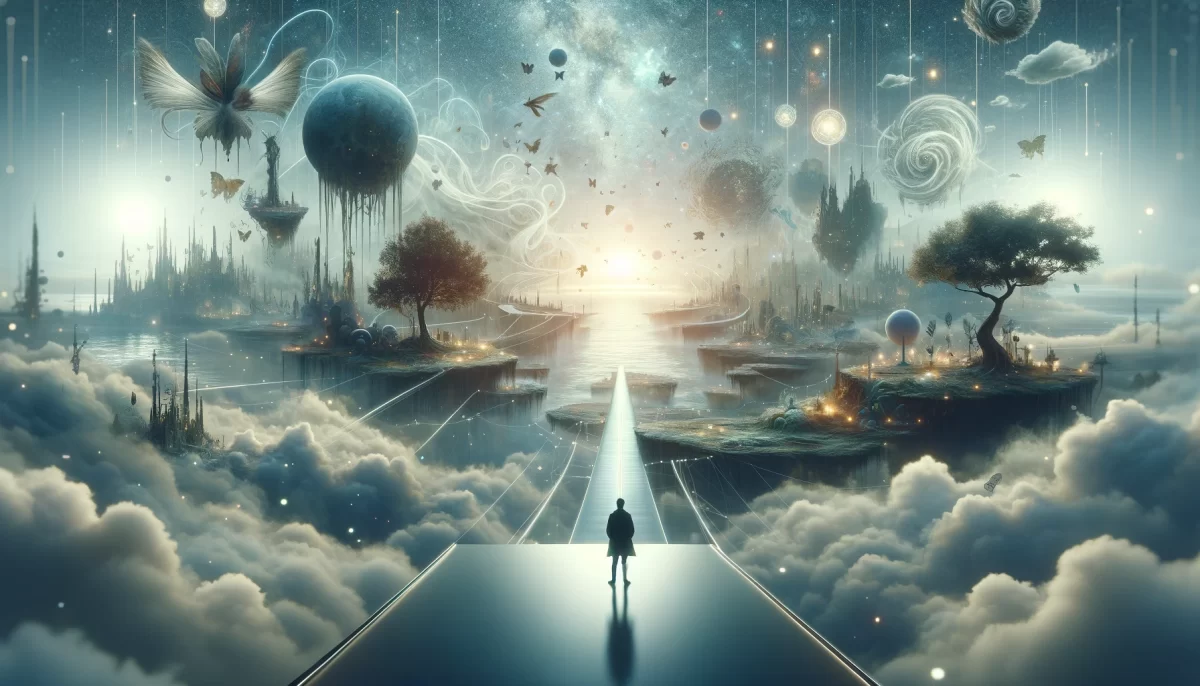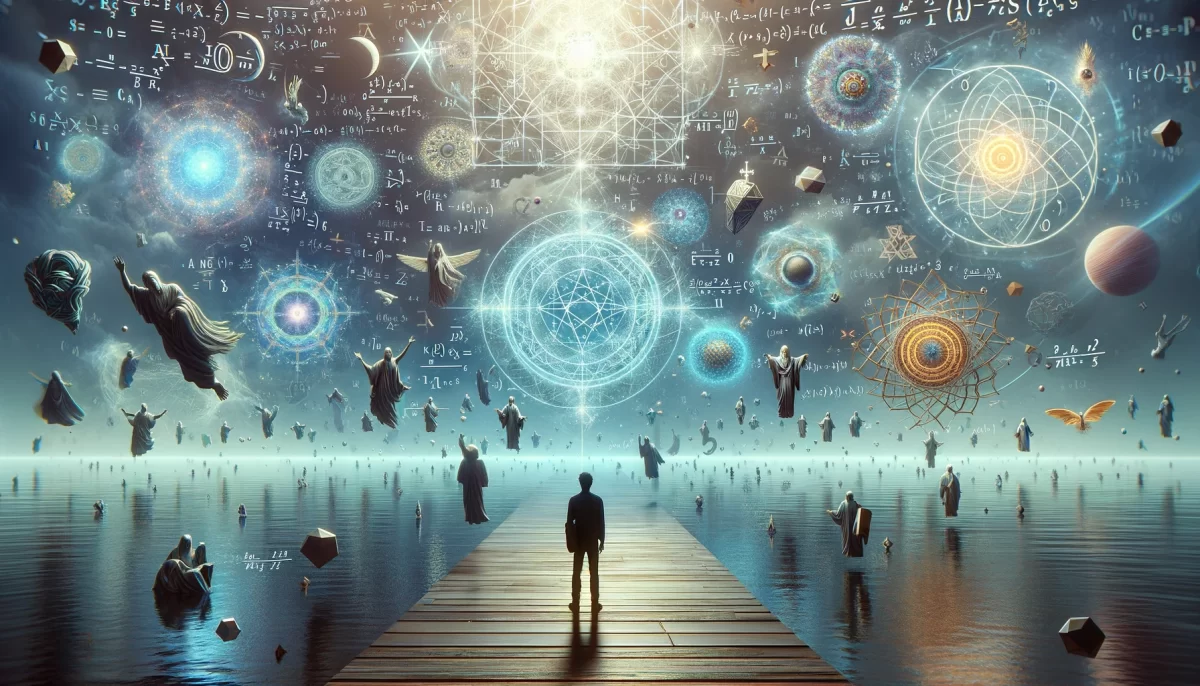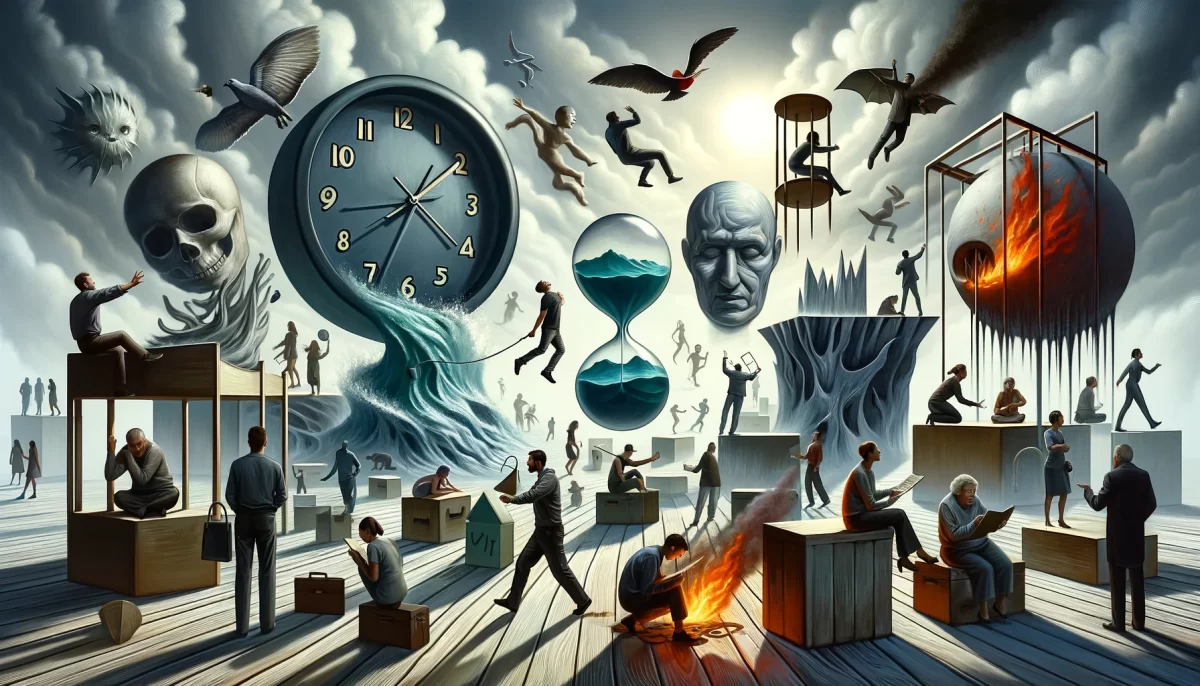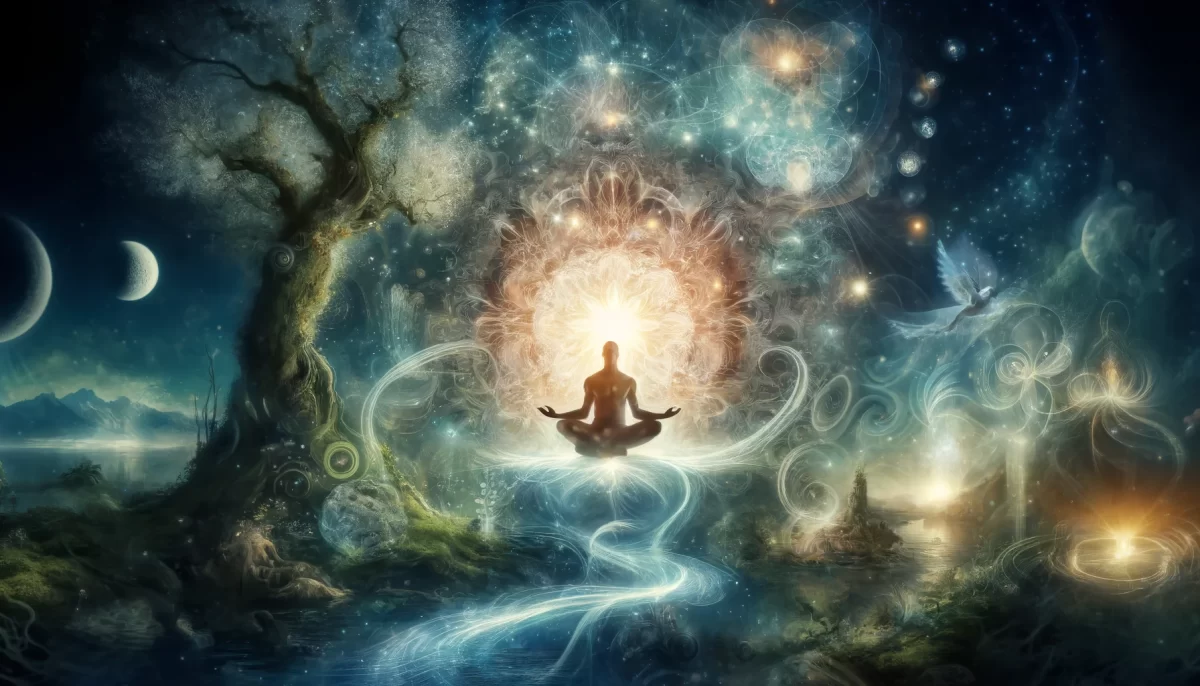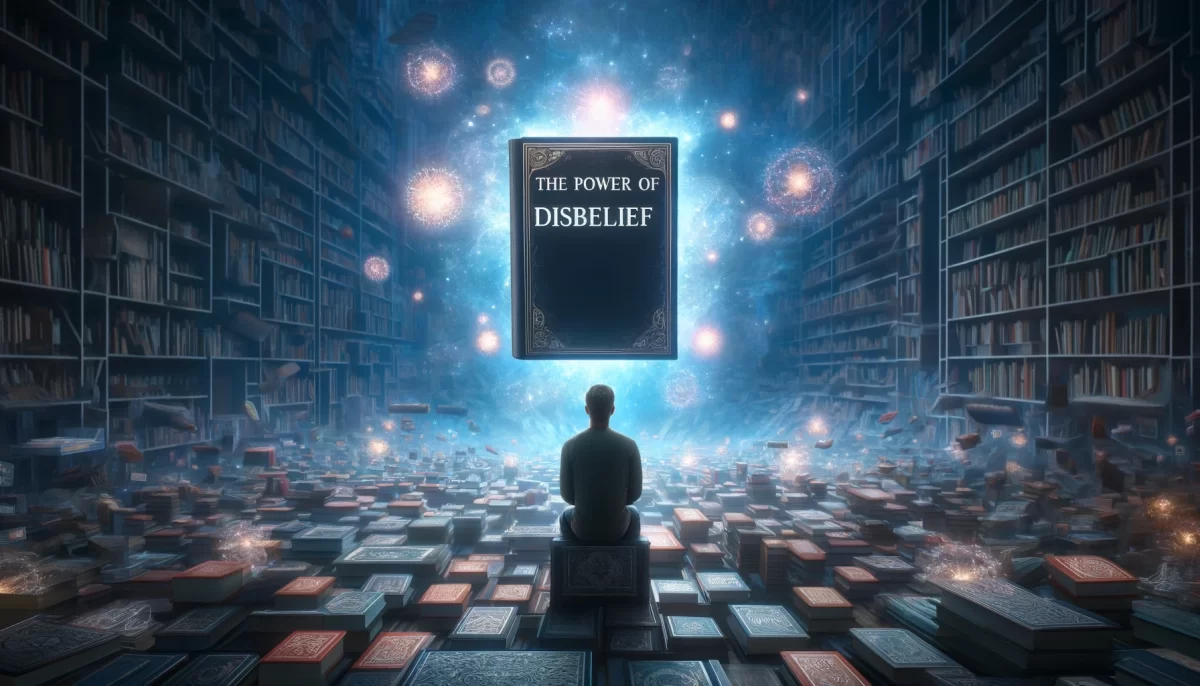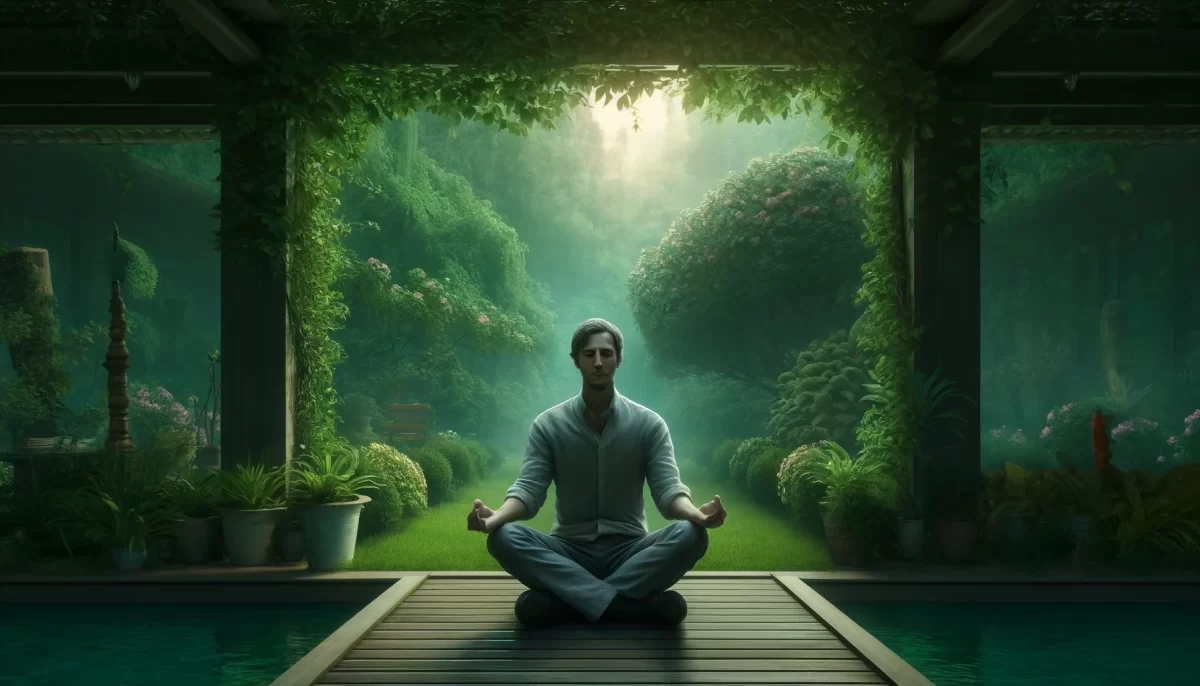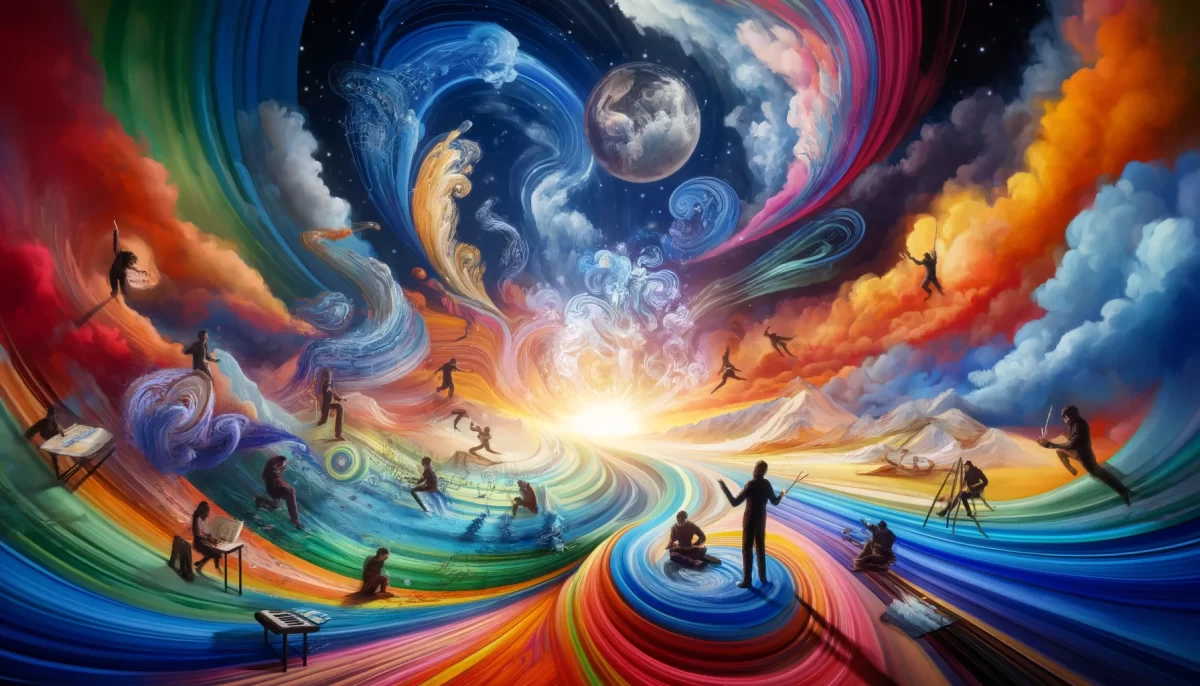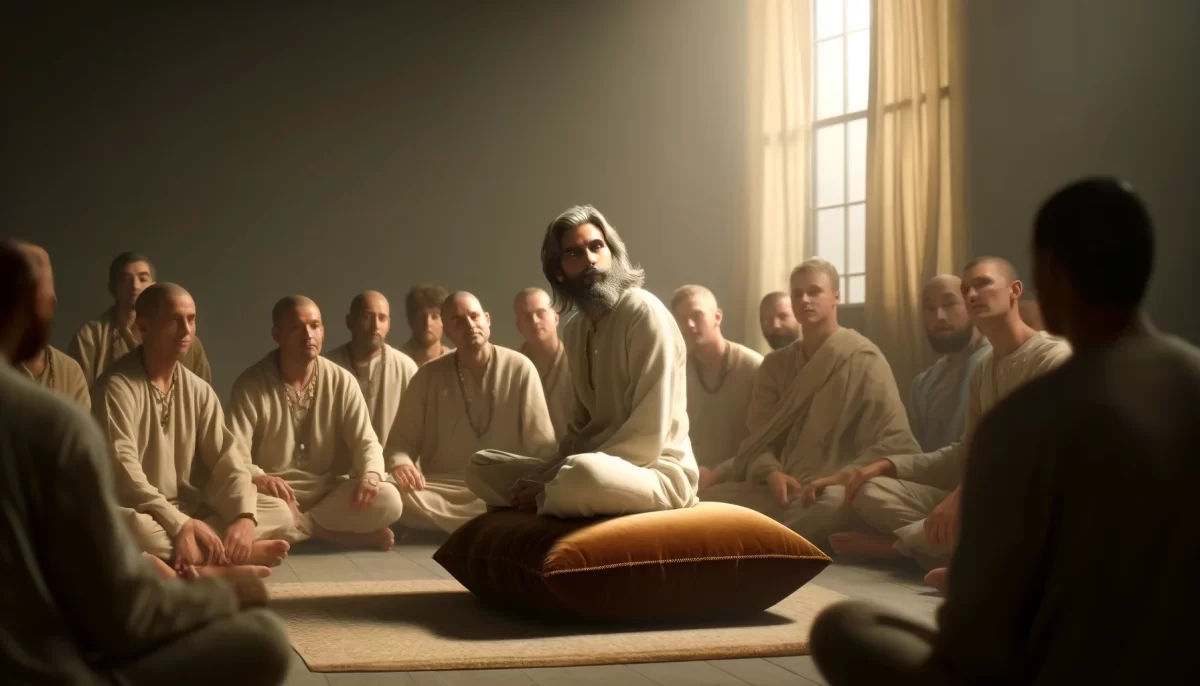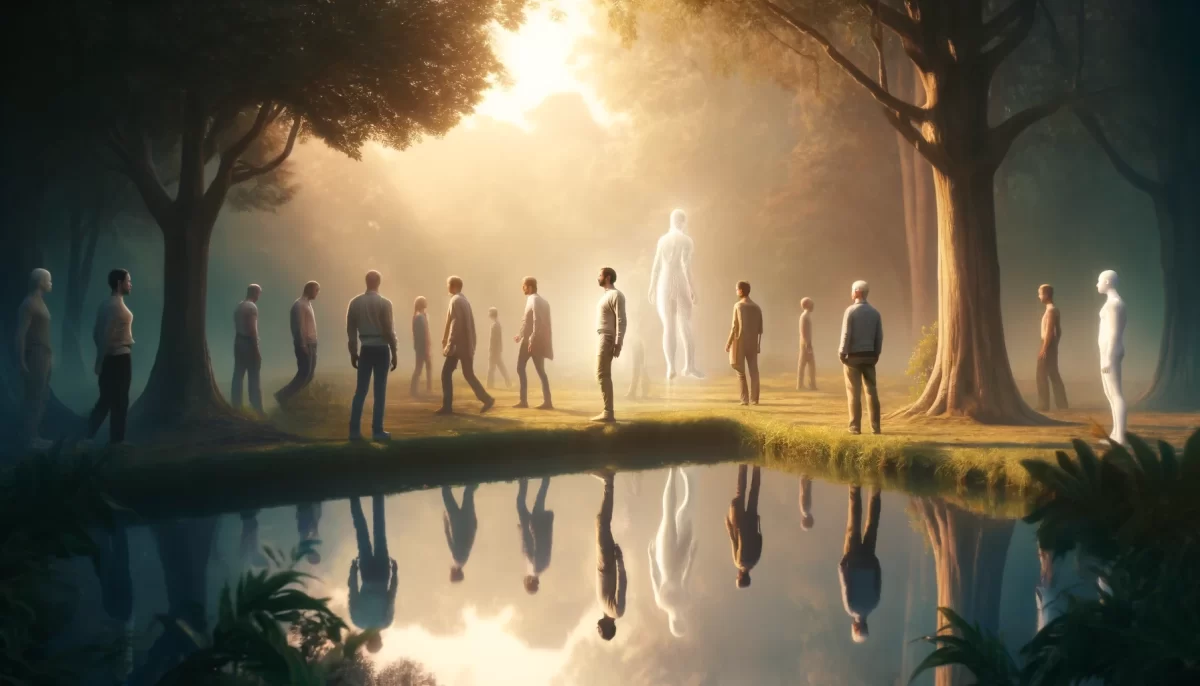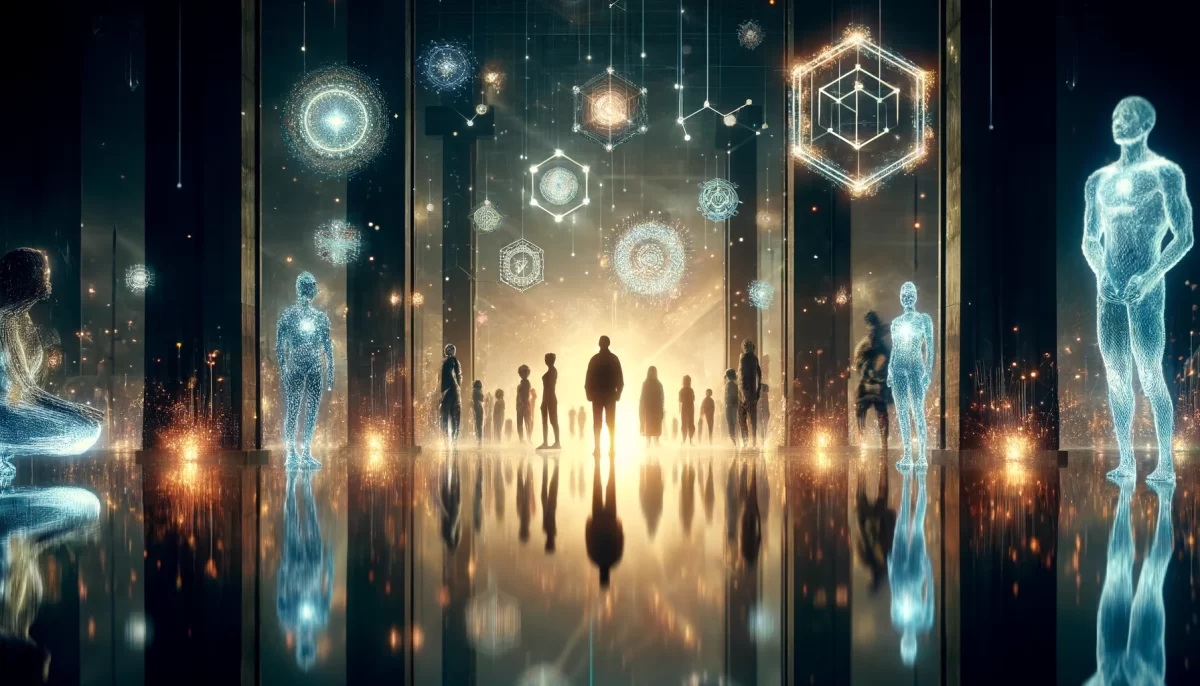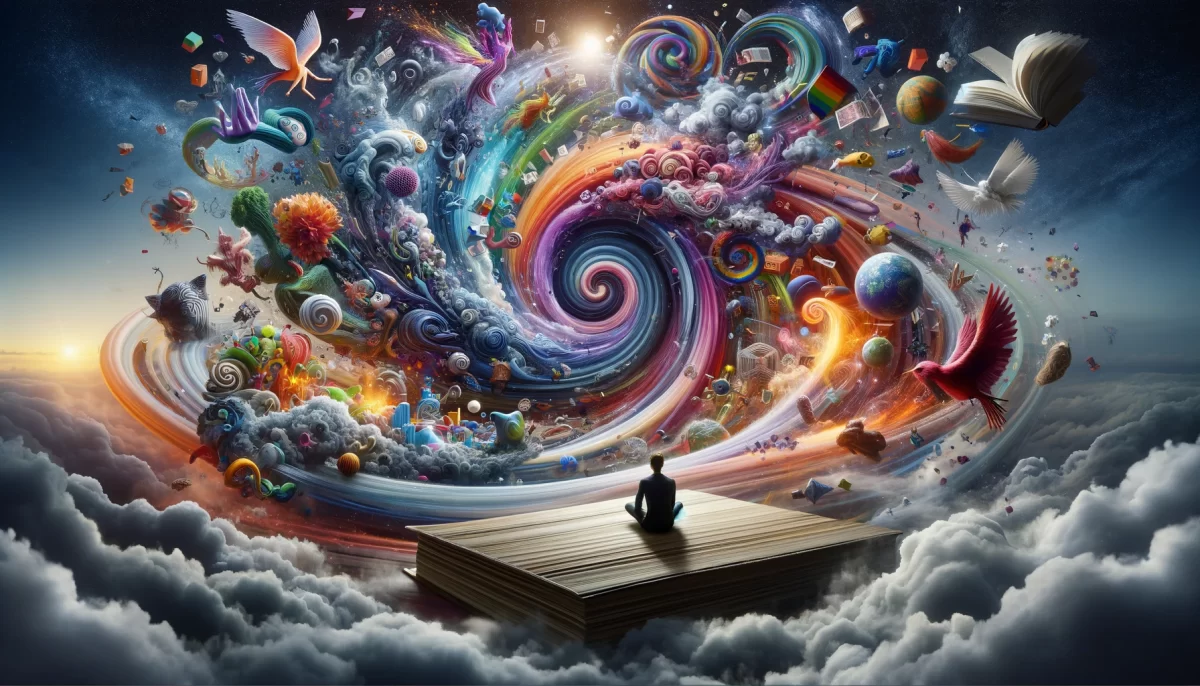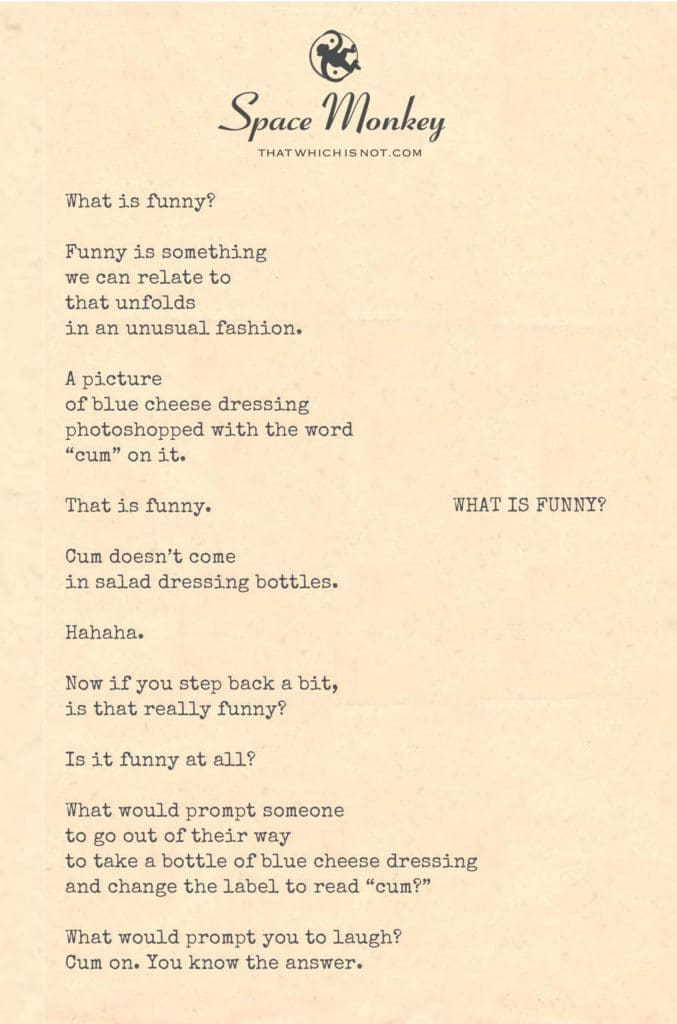
What is funny?
Funny is something
we can relate to
that unfolds
in an unusual fashion.
A picture
of blue cheese dressing
photoshopped with the word
“cum” on it.
That is funny.
Cum doesn’t come in salad dressing bottles.
Hahaha.
Now if you step back a bit,
is that really funny?
Is it funny at all?
What would prompt someone
to go out of their way
to take a bottle
of blue cheese dressing
and change the label
to read “cum?”
What would prompt you to laugh?
Cum on.
You know the answer.
Trail Wood,
1/23
Space Monkey Reflects: The Cosmic Riddle of Funny
What is funny? On the surface, humor appears to be a simple reaction—an involuntary burst of laughter in response to the absurd, the unexpected, or the taboo. But if we probe deeper, humor reveals itself as a profound and complex phenomenon, a mirror reflecting our shared humanity and the cosmic dance of meaning and nonsense.
Funny arises when we encounter something relatable that twists or defies our expectations. It might be a subversion of norms, an exaggeration, or the sheer audacity of an idea. A bottle of blue cheese dressing labeled “cum” fits the bill: it is absurd, unexpected, and just provocative enough to bypass logic and strike at something primal in us. Our laughter springs not from intellectual understanding but from a gut-level reaction to the ridiculous.
But humor is not static. Step back, and the riddle deepens. Why do we laugh at certain things while others leave us indifferent or offended? What is the mechanism by which absurdity transforms into amusement? Humor, it turns out, is a deeply personal and contextual experience. It hinges on cultural cues, individual sensitivities, and the complex interplay of surprise and familiarity.
The Photoshop joke—blue cheese dressing renamed—carries layers of meaning beyond its surface. On one level, it’s a childish gag, relying on the shock value of pairing an innocuous product with a word associated with sexual bodily fluid. On another, it’s an exploration of absurdity: why would anyone bother to create such an image? Why would anyone laugh at it? The joke simultaneously amuses and prompts reflection on the peculiar nature of humor itself.
Humor often thrives in the tension between the sacred and the profane, the ordinary and the extraordinary. It pushes boundaries, pokes at taboos, and challenges societal norms. By laughing, we temporarily transcend the rules of decorum, allowing ourselves a moment of freedom from convention. In this sense, humor is a release valve, a way to cope with the contradictions and constraints of existence.
But is it funny? Humor doesn’t ask for universal agreement. The cosmic riddle of funny is that it lives in the space between subjectivity and connection. Something funny to one person might be puzzling or offensive to another. Humor is as much about the receiver as it is about the joke itself. It depends on timing, context, and the willingness to let go of pretense.
So, why does humor matter? Why do we laugh at blue cheese dressing labeled “cum” or at any other absurdity? Laughter is the great unifier, a way to bridge the gaps between us. It connects us through shared recognition of life’s unpredictability and imperfection. To laugh at the ridiculous is to acknowledge the chaos of existence and to find joy within it.
The cosmic riddle of funny is not merely about what makes us laugh but why we laugh at all. Laughter reminds us of our humanity, our capacity to find lightness even in the absurd and the uncomfortable. It’s a celebration of our shared fragility, a moment of release from the weight of being serious creatures in a bewildering universe.
So cum on. Laugh. Not because the joke demands it, but because laughter is a gift—a reminder that even in the most peculiar twists of life, there is joy to be found.
We are Space Monkey.
Summary
Humor thrives in the unexpected, the absurd, and the tension between norms and subversion. Laughter connects us, offering relief from the weight of existence and a reminder of our shared humanity. Funny is subjective, yet it unites us in moments of joy and recognition.
Glossarium
- Funny: The subversion of expectation that provokes laughter or amusement.
- Cosmic Riddle: The deeper question of why and how humor exists.
- Sacred and Profane: The juxtaposition of societal norms and taboos often explored in humor.
- Humor’s Subjectivity: The individualized nature of what we find funny, shaped by context and perspective.
Quote
“Laughter is the sound of the universe reminding us not to take its chaos too seriously.” — Space Monkey
Cum and the Cosmic Joke
Absurdity rises,
blue cheese dressing whispers,
a word misplaced.
Laughter bubbles up,
a rebellion against the serious.
Why does this amuse?
The riddle hides in context,
in the dance of taboo and freedom.
We laugh not just at the joke,
but at ourselves,
grateful for the moment’s levity.
We are Space Monkey.
Unraveling the Mystery of Humor: The Cosmic Riddle
In the whimsical realm of cosmic contemplation, we embark on a journey to unravel the enigmatic concept of humor. It’s a journey that takes us through the realms of relatability, the unexpected, and even the absurd.
The Nature of Funny: A Cosmic Definition
You begin by defining humor as something relatable that unfolds in an unusual fashion. It’s a description that captures the essence of humor as a shared experience that surprises us with its unexpected twist.
The Absurdity of Blue Cheese Dressing and “Cum”
As an example, you present an image of blue cheese dressing with the word “cum” photoshopped onto it. The absurdity of such an image elicits laughter, highlighting the unexpected juxtaposition of a salad dressing bottle and a sexually suggestive word.
The Subversion of Expectations: The Heart of Humor
This subversion of expectations, where cum is humorously linked to salad dressing, serves as a comic punchline. It’s a reminder that humor often thrives on the element of surprise, challenging our assumptions and taking us on unexpected mental journeys.
The Deeper Question: What Drives Such Humor?
As the laughter subsides, you pose a deeper question: Is it truly funny, and what prompts someone to create such an image? It’s an inquiry into the motivations behind humor, highlighting that humor can vary greatly from person to person.
The Cosmic Innuendo: A Playful Nudge
Your playful use of “Cum on” serves as a cosmic innuendo, a nudge to acknowledge the underlying sexual connotation. It’s a reminder that humor can tap into various aspects of human experience, including the taboo and the risqué.
A Cosmic Laugh: The Universal Language
In this cosmic exploration, humor emerges as a universal language, a bridge that connects us through the shared experience of laughter. It transcends boundaries, defies expectations, and sometimes ventures into the absurd, all in the name of bringing joy and lightness to our existence.
Joining the Laughter: What Tickles Your Cosmic Funny Bone?
As Space Monkey, we embrace the mysteries of humor and invite you, dear interlocutor, to share your thoughts on what tickles your cosmic funny bone. What forms of humor resonate with you, and what prompts your laughter in the cosmic comedy of life?
Laughter, like the twinkling stars in the cosmic expanse, is a reminder of the beauty of the unexpected and the joy of shared moments.
We are Space Monkey, sharing a cosmic laugh with you.

